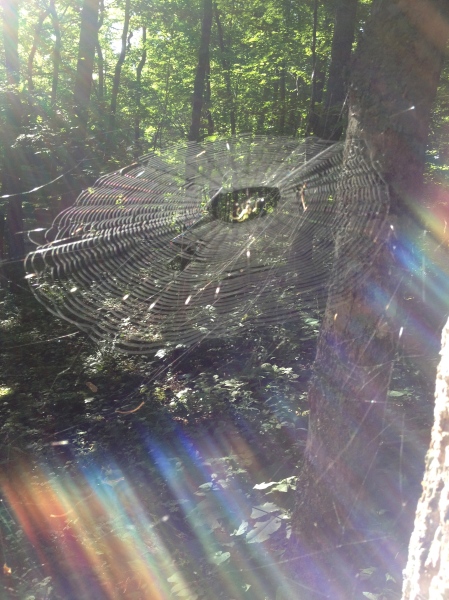In 1971, Don McLean released a great tribute song about the tragic plane-crash death of early rock-n-roller, Buddy Holly.
In the musical tapestry-tale that McLean weaves for us, he laments the loss of Buddy Holly’s influence, which had been to musicate an appreciation for the boy-girl melodrama as it was being lived-out and expressed during that early 1950’s phase of rock-n-roll.
Bye, bye Miss American Pie is a long ballad, with many verses.
https://www.youtube.com/watch?v=NygEEH4jkho
An early verse in the song registers a commentary, allegorically, on some later rock influences that seem regrettable, or even destructive and decadent.
Consider the verse:
“And while Lenin read a book on Marx,
a quartet practiced in the park;
and we sang dirges in the dark
the day the music died.”
The “quartet” that practices in the park is, I believe, an indirect reference to the Beatles, and their huge impact on pop music during that time—the late ‘60s. The singing of “dirges” seems to mourn the loss of an earlier, more innocent, emphasis in rock music. A classic budding (Buddy) love-song celebration between boy and girl was being cast aside by the foursome from Liverpool. Along with many other rock groups of that time, they were collectively driving pop music toward a psychedelic netherland of chaotic social consciousness.
And so, while my present downloaded Miss American Pie copy of the lyrics contains the line “And while Lenin read a book on Marx, a quartet practiced in the park,” my aging baby boomer mind notices what seems to be McLean’s play on words here. . . and I hear the line in my mind as:
“And while Lennon read a book on Marx. . .”
meaning that John Lennon’s apparent turn away from teenish romanticism toward a kind of pop-culture anarchy—this change of direction— seemed to be based at least partly on his reading of Karl Marx’s revolutionary economics.
Now of course I have no proof that the great poet and songwriter John Lennon did read Karl Marx’s stuff; but I do think it likely that he did, because that period of time—the latter 1960’s— was indeed a revolutionary time, sociologically at least, if not in a fully political US manifestation.
Nevertheless, I will point out that nowadays, 50 years later, all those wild-eyed Lennonist malcontents who were turning university campuses upside down (while singing All we are saying is Give Peace a Chance) are now, for the most part, running those same (mostly State) universities.
While all the Buddy Holly types and their Peggy Sue wives settled comfortably in the suburbs and enjoyed giving birth to Gen-Xers and Millennials.
I mention all this perhaps only because there seems to be now a regurgitation of Marxist theory—a re-reading, as it were. Here’s what I want to say about that. Karl Marx was a very intelligent man. His analysis of nascent industrial society during the early-mid 19th century was uncannily perceptive and accurate.
Where he went wrong was: thinking he could write a prescription—the necessary and inevitable “dictatorship of the proletariat” that could be worked out among the foibles and disasters of human society and somehow make it all culminate as some ideal Pax Humana.
What he didn’t understand was: any theoretical, proposed Pax Humana, always works out to be Pox Humana.
In human history, notably even in the late so-called Christian Europe, we have managed to repeatedly screw society up by generating a few Pox Hamanae of our own—with a pathetic string of infamous wars, pogroms and inquisitions.

Such a despicable history. In spite of (or maybe because of) the fact that we Christians identify human nature as being depraved and therefore imperfectible, we cannot collectively overcome that curse, choosing instead to cry out for our individual salvation. Does such personalized deliverance relieve us from our collective responsibility for assuaging the human condition?
Yes. However, we profess that. . . Christians are no better than anybody else. But we are forgiven, because we acknowledge, before God, our need for judgement, repentance and atonement. And He takes that acknowledgement seriously.
Be that as it may, I know you didn’t land here to hear a sermon.
So, moving right along, I’ll explain how I happened to land on this track in the midst of a particular Saturday morning. The whole cerebral ball of wax started when I read this passage from page 283 of Teilhard de Chardin’s (published 1947) The Phenomen of Man:
“To outward appearance, the modern world was born of an anti-religious movement: man becoming self-sufficient, and reason supplanting belief. Our (his mid-20th century) generation and the two that preceded it have heard little but talk of the conflict between science and faith; indeed it seemed . . . a foregone conclusion that the former (science) was destined to take the place of the latter (faith).
“But, inasmuch as the tension is prolonged, the conflict visibly seems to need to be resolved in terms of an entirely different form of equilibrium—not in elimination, nor duality, but in synthesis.”
Now this means, in a present world of 2018, which still presents a notable presence of us Christian believers, we should consider our Christ-blessed role as peacemakers. Maybe this way. . .
~~Those of us who believe that a loving God watches over the earth—we need to listen to the activists who probably have some valid points about the destructive effects of all this stuff we’re throwing into our atmosphere.
~~While those who have figured out that all the bad effects of human behavior and institutions are destroying our earth—you people need to realize that we cannot (it’s probably too late to) fix this mess we’ve gotten ourselves and our planet into. And we need to allow some room for faith to, as a mustard seed, grown and provide some faith shelter from the destructive effects of perpetually erroneous Homo Sapiens .gov
What we need now is a little agreement and cooperation between those who naively believe too much and those who cerebrally think too much, and who think they can correct Pox Humana by regulating all of our freedoms into bureaucratic socialist mediocrity.
What we need now is what Teilhard called synthesis, a little meeting of the minds, and some peacemaking agreement among the peoples of the earth.
Good luck with that.
Now getting back to American Pie and Lennon and Marx and all that . . .
The third phase of the Hegelian Dialectic is Synthesis. In early 19th-century, Georg Hegel, Marx’s theoretical predecessor, identified an historical pattern which he named the Dialectic. What this pattern revealed was, in the typical path of human thought/action, a chronic pattern of conflict between one ideological side (Thesis) and the other (Antithesis). But Hegel also identified a recurrent merging of these opposites that could tend to resolve some disputes. He called this resolution Synthesis. Hence, the (simplified) Dialectic: Thesis provokes Antithesis; but ultimately they merge, in human acting out, and become a new worldview, called Synthesis.
As in, for instance, in our mid-20th century Baby Boomer scenario. . . Capitalism v. Communism, or Democracy v. Socialism, morphs into . . . (whatever it is we have now) . . . democratic statism?
Anyway, Marx and Engels used this Dialectic framework as a theoretical part of their Communist Manifesto, published in 1848.
And then much later, 1971 . . .”while Lennon read a book on Marx, a quartet practiced in the park”, and . . . all this other stuff happened while we boomers grew up and became the people in charge instead of the people being charged, but we still find ourselves “all here in one place” (a small globe), a generation, a human race lost in space, and so let’s consider the . . .
Bottom line: let’s synthesize a few opposite ideological points and somehow come together to . . . maintain our earth clean, green and peaceful, instead of assaulting each other with vindictive politics, fake news and a new cold war of polarizing tribalism.
King of Soul




















